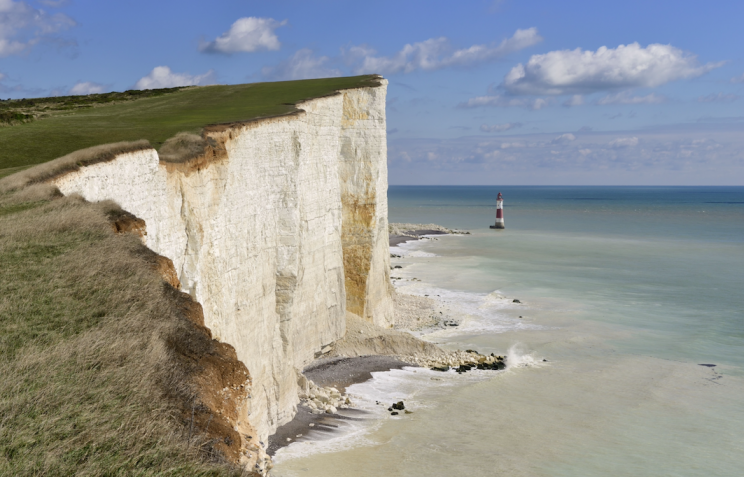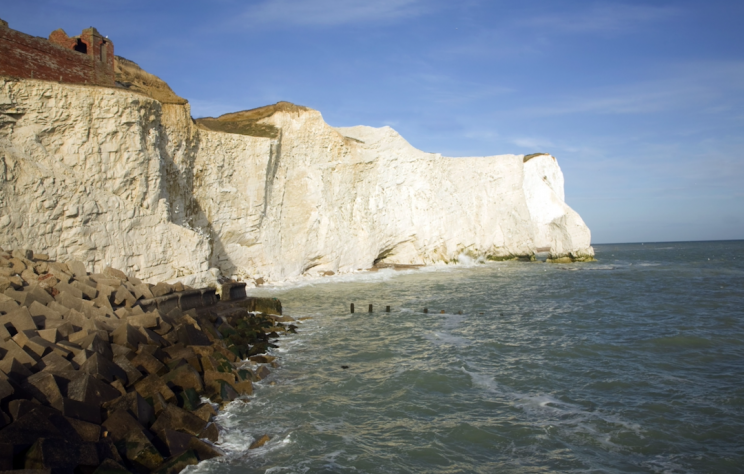England's white cliffs are eroding faster than ever

England’s white cliffs are now eroding faster than they have done over the past few thousand years, according to new research.
The iconic south coast chalk cliffs at Beachy Head (above) and Seaford Head in East Sussex have eroded between 22 and 32cm a year over the past 150 years.
That figure is 10 times more than the two to six centimetres of the past 7,000 years, according to researchers from the University of Glasgow.
And the researchers, led by Dr Martin Hurst, predict that an increase in storm intensity as a result of climate change will accelerate the erosion process.

Dr Hurst told the BBC: “Our coasts are going to change in the future as a result of sea-level rise and perhaps increased storminess, and we want this work to inform better forecasts of erosion.”
Co-author of the study, Dr Dylan Rood, from Imperial College London, added: “The coast is clearly eroding, and Britain has retreated fast. A nearly tenfold increase in retreat rates over a very short timescale, in geological terms, is remarkable.
“The UK cannot leave the issue of cliff erosion unresolved in the face of a warming world and rising sea levels.
“Cliff erosion is irreversible; once the cliffs retreat, they are gone for good.”
The study is set to be published in the Proceedings of the National Academy of Sciences journal.
Top pic: Rex

 Yahoo News
Yahoo News 

